VARIOUS ARTISTS / “People Get Ready Mixtape”
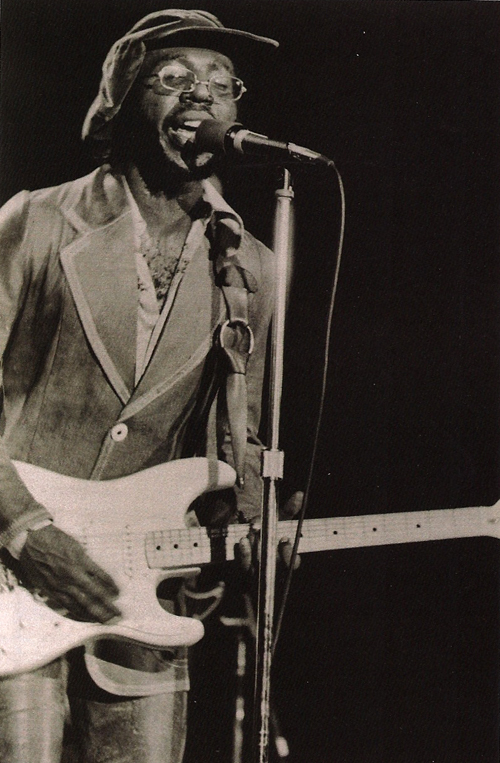
Curtis Lee Mayfield (June 3, 1942 – December 26, 1999) tuned his guitar to the black keys on the piano. But what else would we expect from a man who was proud of his pentatonic heritage? Five notes, six strings—put the bottom on an octave. You could play anything and it would fit if you had the rhythm or knew how to drop in a passing chord.
Passing chord? Remember how when you was going somewhere you used to stop some place in between—maybe to pick up a sandwich or to see if ya boy was home who been holding your Pharoah Sanders record for six weeks now and always seems to forget to bring it back to you. Being determined to keep your collection intact, you decide every chance you was anywhere near, you would do a Bobby Womack and stop on by until you got back what was rightfully yours? Remember? Well, a passing chord is one of them kind of trips—it’s not a destination, rather it is a stop on the way to the destination.
Turns out Curtis is a passing chord in the history of post-fifties conscious black music. Mayfield is seldom the final stop in our collection, like, for instance, is Nina Simone or John Coltrane or, for that matter, Jimi Hendrix (except he is not quite both conscious and black at the same time, even though, obviously, he is both; anyway…). Curtis Mayfield is a minor chord who has had a major impact on the music.
While the “major impact” should be obvious, why do I say “minor”? Well, except for “Superfly,” Curtis’ music never dominated the charts, and were it not for the popularity of Superfly the movie, even that song may not have been so dominate.
Curtis’ work with The Impressions, though clearly inspirational and clearly of a high artistic level, was not a match for The Temptations, who surpassed The Impressions in both popularity and in lasting impact as a group.
So that’s part of what I mean about “minor.” I’m speaking in the sense of “pop” popularity. But by “minor,” I’m also referring to that sound Curtis mined, a sound centered in the exploration of what Europeans call “sadness” or “melancholy,” a sound most of us of African heritage intuitively know as the dialectical aurality of living in this mean old world, the vibration of colonial and post-colonial existence from the field perspective. 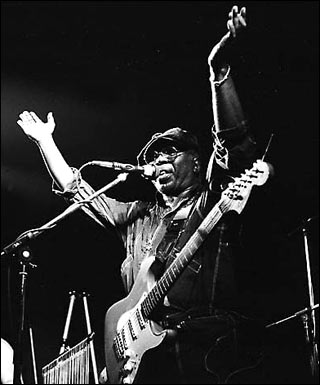
If Motown was the “sound of young America,” Curtis was the wail of black America—and also the croon. Pentatonics and rhythms. And awareness: we people who are darker than blue. Damn, what an inspired descriptive phrase: “darker than blue.”
What is darker than blue? Who is darker than blue? What’s left to get to on the spectrum if you go darker than blue? It sho ain’t gray.
Like looking at the negroes in the field while you’re standing on the upper balcony of the big house, Curtis Mayfield seems minor in a far off over yonder sort of way, but the big news is that Curtis was not writing to appeal to or describe what was happening in casa blanca. You might say what Mayfield wrote was a shovel and hoe variation on hammer and sickle—revolutionary in it’s political implications and anathema to mainstream moderates, who, at best, damn by offering only faint praise.
If you check closely, you will also note that Mayfield’s lyrics paid attention to black women, as would any accurate reflection of who was in the fields and what went on there.
All of which is just an introduction, or should I say, is a just introduction to one of Curtis’ most enduring songs, a song my man gathered from the lives of the sufferers, from the musical heritage of those whose cultural patrimony/matrimony is systematically low-rated, not to mention whose cultural contributions are both super-exploited and super-demeaned (even by well meaning observers).
If I say black music has had a greater impact on post-colonial, world musical culture than has classical music, almost everyone could understand that assessment. But is that assessment taught in public schools, enshrined in higher education, upheld by national tastemakers and mainstream opinion shapers?
And I would suggest that until the other man gets ready to officially recognize the seminal importance of the brother man, until all of us get ready to recognize the reality and importance of black cultural contributions, until then, Curtis Mayfield’s music will continue to be under appreciated.
Before I forget, go here to read an appreciation of “We People Who Are Darker Than Blue,” another Mayfield composition that we featured last year on BoL.
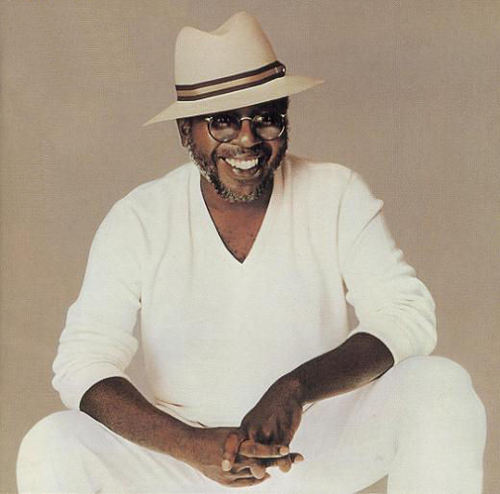
What struck me in putting it together was how diverse the interpretations are, ranging from Asante and The Persuasions a capella arrangements to major productions from Al Green with Heather Hedley and British superstar Seal; from stripped down hip-hop beats behind a resurgent Stephanie Mills and all up underneath Roy Davis Jr., to classic takes from Aretha Franklin and Aaron Neville.
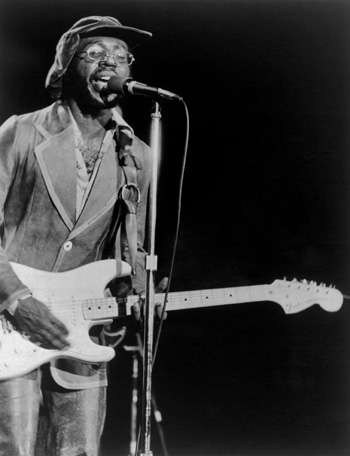
Fifteen versions, including Curtis live, singing in his distinctive, trademark falsetto—BTW, Curtis makes it sound simple and easy but try singing along and you will find out those five notes are easy to recognize but difficult to match. I also like voices such as Dionne Warwick and Jimmy Scott, both of whom are instantly identifiable, whether sticking to the middle of the pop road or taking an outtish jazz excursion.
There is something about the song that makes it possible to do so much, so, so much. Add your own flavors, bend it to fit how you flow melody, what you like in harmony, not to mention your rhythm proclivities. Indeed, it’s almost hard to believe that everybody on the mixtape is singing the same song. But that’s just part of the genius of Curtis Mayfield—any of us could have been in the field, bringing whatever we brought with us, brought from our mother cultures, and Curtis in his musical wisdom wrote to reflect our field-hand diversity. Curtis crafted songs we could all use in our own way to get our point over.
This music continues to be open, wide open for participation from around the world. Bring whatever what your mama birthed you, you can fit ‘cause black music is not a form but a feeling, not a restriction but an open-ended exploration. Whatever you got, you can give and get it refracted, amplified, focused in its feeling, articulated in its representation of your own reality, distinctive within but not separate from all of humanity.
In these versions you can hear church but you can also hear blues, you will find straight singing as well as jazzy variations. Diversity, the democracy of the pentatonic as opposed to (and in opposition to) the tyranny of tuned music that dictates that only one way is the correct way.
Finally, I want to mention the last track by Terry Callier, a fellow Chicagoan and contemporary of Curtis Mayfield. Terry’s contribution is actually a two-song medley. The opening is Mayfield’s “People Get Ready” but the bulk is Callier’s “Brotherly Love.” I really, totally dig both songs. Hope you do too.
—Kalamu ya Salaam
People Get Ready Mixtape Playlist
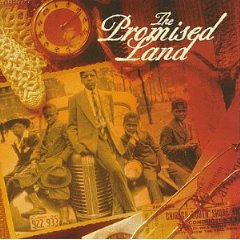
01 The Promised Land soundtrack - Asante
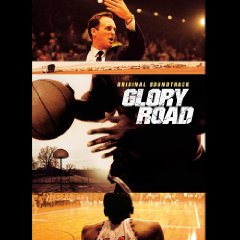
02 Glory Road soundtrack - Alicia Keys and Lyfe Jennings
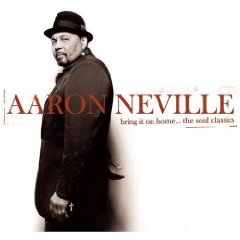
03 Bring It On Home... The Soul Classics - Aaron Neville
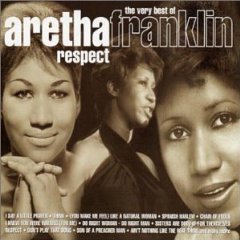
04 Respect (The Very Best Of) - Aretha Franklin
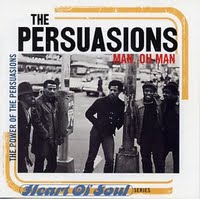
05 Man, Oh Man: The Power Of The Persuasions - The Persuasions
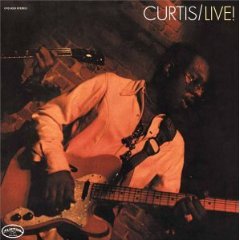
06 Curtis/Live - Curtis Mayfield
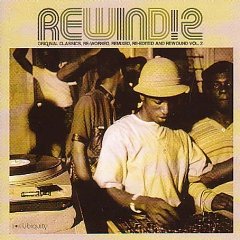
07 Rewind! 2 - Roy Davis Jr
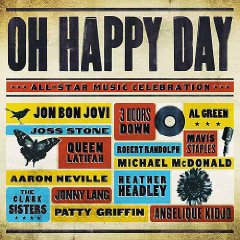
08 Oh Happy Day - Al Green & Heather Headley
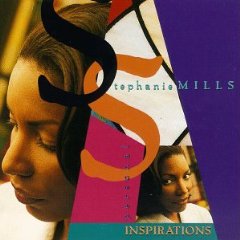
09 Personal Inspirations - Stephanie Mills
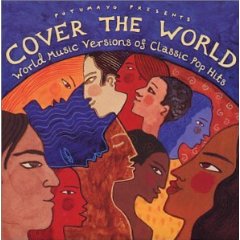
10 Putumayo presents Cover The World – Phoebe Snow & Ladysmith Black Mambazo
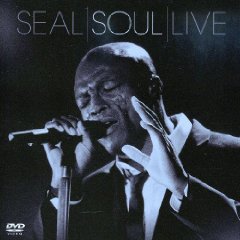
11 Soul Live - Seal
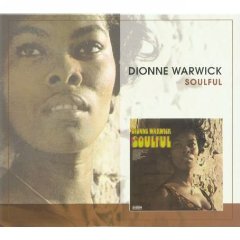
12 Soulful - Dionne Warwick
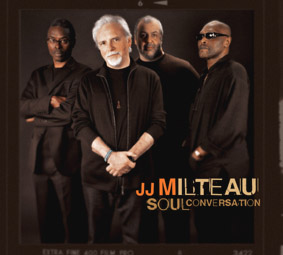
13 Soul Conversation - Jean Jacques Milteau
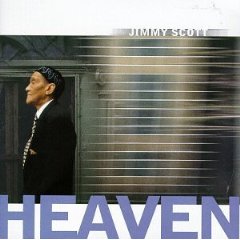
14 Heaven - Jimmy Scott

15 Timepeace - Terry Callier
This entry was posted on Monday, October 19th, 2009 at 12:25 am and is filed under Cover. You can follow any responses to this entry through the RSS 2.0 feed. You can leave a response, or trackback from your own site.
3 Responses to “VARIOUS ARTISTS / “People Get Ready Mixtape””
October 25th, 2009 at 10:52 am
These are ALL good … finding myself keeping Stephanie and
Terry on replay!
Great set, thank you.
October 25th, 2009 at 10:54 pm
Brother, brother, brother…
You should feature Curtis at least once a year — and it would take the rest of your natural life to describe the rich tapestry of mood, meaning and maturity in his songs.
Street scholar, guru-griot, cool cat, philosopher… Curtis has been all this for me.
Where you hear the blues, I hear a resounding message that life is serious business for “Black” people in the United States. Somber, solemn, and sobering, his music consistently pays tribute to our collective strength and reminds us of the courage and stamina it takes to make this world a better place.
And there is happiness in his lyrics; a quiet contentment in knowing that we each can make a difference. Just sit and listen for awhile. LISTEN! Curtis delivered the word. From his gospel roots through the doo-wop days, on to Soul, funk, disco and beyond — what Curtis had to say endures.
Oh, did I mention that he’s my all-time favorite artist?
Leave a Reply
| top |